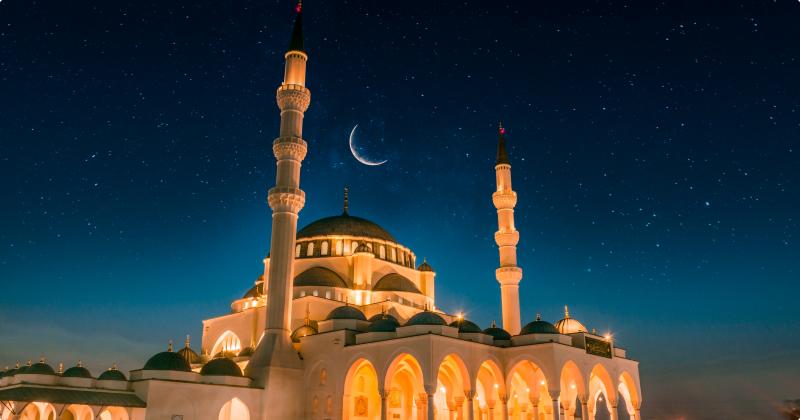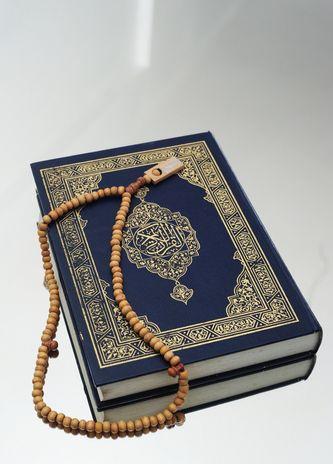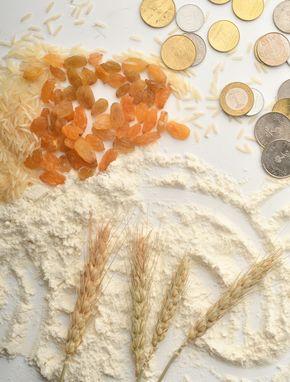
Ramadan is the ninth month of the Islamic calendar and is a highly sacred time that honours the fourth pillar of Islam, Sawm, which means “to fast.”
It’s a highly significant time for Muslims everywhere that sees them fast for a full month between sunrise and sunset. It’s an extremely poignant time that is based on a rich yet complex history. So, when did Ramadan start in history?
To understand Ramadan, we go back to the origins of Islam. Islamic history starts in Mecca, Arabia, in 610 A.D. A 40-year-old man by the name of Muhammad (SAW) lived in the city and frequently visited Cave Hira in the Jabal an-Nour mountain in order to meditate. On the 27th night of the ninth lunar month, Muhammad (SAW) was meditating in the cave when he was descended upon by the angel Jibril (also referred to as the angel Gabriel).
The angel told Muhammad (SAW) of Allah (SWT), the only true god. At this time in Mecca, it was widely believed that there were several gods and, as such, people prayed to many different deities. The angel told Muhammad (SAW) that this was wrong because there was only one God, and His name was Allah (SWT). The angel went on to reveal the first segments of what later became known as the Qur’an – the direct words of Allah (SWT).
The angel asked Muhammad (SAW) to recite, to which Muhammad (SAW) responded that he could not read. Angel Jibril squeezed the Prophet (SAW) and told him to read again, to which the Prophet (SAW) again responded that he could not read. The angel squeezed him again a second time, and the Prophet (SAW) had the same response. Angel Jibril squeezed the Prophet (SAW) for a third time and told him to read. This time, the Prophet (SAW) read the verses of Surah Al-Alaq perfectly.
The angel went on to tell Muhammad (SAW) that he had been chosen by Allah (SWT) as the final of the 25 prophets of Islam. As such, Muhammad (SAW) was commanded to spread the word of Allah (SWT) and tell everyone that He is the only true god. This night is referred to as Laylat al-Qadr, which means the night of power.
Over the course of 23 years, the angel visited the Prophet Muhammad (SAW) many times, each time revealing more and more of the Qur’an and the words of Allah (SWT). Over the years, five core principles came to the forefront as the basic foundations that all followers of Islam should live their lives by.

Sawm is the fourth pillar and was revealed well into the 23-year period of revelations alongside the teachings of Ramadan. The Prophet Muhammad (SAW) was instructed by Allah (SWT) to fast for the entirety of the ninth month of the lunar year. There are various reasons as to why Prophet Muhammad (SAW) and all followers of Islam were told to fast, including:
The Prophet Muhammad (SAW) was told that in addition to abstaining from food, Muslims should also refrain from swearing, fighting, arguing, gossiping, and all impure thoughts/activities during sunlight hours. He was also informed that every Muslim with more than one ‘Sa (two cupped handfuls of staple foods – equivalent to around 3kg) must make a charitable donation known as Zakat al-Fitr/Fitrana. This is irrespective of age. If a child cannot pay, but they live in a household with food in excess of their needs, the head of their household must pay on their behalf. Fitrana payments must be made during Ramadan, before Eid Al-Fitr prayers.

Fitrana was formerly paid by way of donating one ‘Sa of staple food. Registered charities such as ILM accept monetary donations equivalent to one ‘Sa (usually £5 or less) and use it to distribute aid amongst communities most in need.
Zakat al-Fitr/Fitrana is not to be confused with Zakat. Zakat can be given at any time of the year (though many choose to donate on Laylat al-Qadr or any of the other last 10 nights of Ramadan) and is only payable by those who meet the Nisab threshold.
Allah (SWT) told Muhammad (SAW) that all able Muslims should fast, although He outlined a group of people who could refrain from food fasting (the other aspects of Ramadan are still to be adhered to). Those exempt from fasting include:
The sick and poorly (including those on prescribed medication)
The elderly and frail
Pre-pubescent children and infants (typically 14 years and under)
Travellers
During Ramadan, Muslims eat two meals: Suhur and Iftar. Suhur is the meal that is eaten before sunrise and is very similar to a traditional breakfast. High fibre, high protein, and high-water foods are eaten, such as eggs, cereal, toast, fruit, and soup. Iftar is the meal that is eaten after the sun has set and is similar to a normal dinner, although it is altered slightly to include as many food groups as possible.
The Prophet Muhammad (SAW) ate dates to break his fast, and as such, many Muslims eat dates prior to enjoying their Suhur and Iftar meals.
The end of Ramadan is marked by Eid Al-Fitr celebrations. As a reward for fasting, Muslims are rewarded with rich food, presents, and gatherings with friends and family.
If you’d like to find out more about the history of Ramadan in Islam, Fitrana, Eid, or Zakat, please consult your local Imam, or contact us.